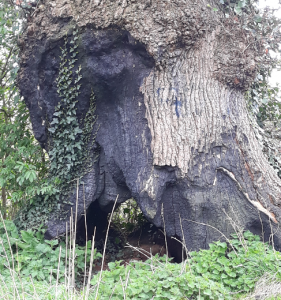We are living in times of significant upheaval and change. The societal and economic disruption brought about by the Covid-19 pandemic, worsening weather-related disasters and numerous conflicts around the world have displaced millions, affected food supplies, and destabilised economies. The scale and magnitude of the problems can feel overwhelming at times. But we have confidence that God is good.
‘God is good’ – this statement is not some trite platitude or merely a nice idea. Neither is it a flippant disregard for the challenges people face.
In Tearfund Ireland we have confidence in the nature and character of God. We believe Jesus is the Prince of Peace, the one who restores broken relationships and reconciles all things to God. We also believe He has invited us, His Church, to participate with Him in His mission.
However, when we see evidence of so much that is broken, wrong and unjust, it can be difficult to know where, or even, how to begin.
Jeremiah 9:24 gives us an insight. God, speaking through the Prophet says, “…let the one who boasts boast about this: that he understands and knows me, that I am the Lord who exercises kindness, justice and righteousness on the earth, for in these I delight,” declares the Lord.
In this verse God himself provides a very clear description about his nature. Not only does He exercise kindness, justice and righteousness, but He delights in doing so. He enjoys demonstrating His kindness. He likes it when righteousness is established and, when things get off balance, He delights when justice is carried out.
In this statement God not only reveals three things He values, but He also extends an invitation. Inherent in the idea that those who know God will understand His ways, is a call to lean into Him, to observe and to learn. The more we know the Lord, the more we will understand why He delights in justice and righteousness. God is reminding His people of what He spoke through the author of Proverbs 28:5, “evil men do not understand justice, but those who seek the Lord understand it fully”.
It is easy for us to understand that God delights in displaying kindness on the earth. Many of us have frequently heard teaching about his Love, goodness and mercy so it follows that we would be comfortable with the idea that God desires to display His kindness.
But it can often be a challenge to apply a similar level of comfort to God’s delight in exercising justice. Perhaps our understanding of justice has been tainted by hearing others’ appeal for justice for a particular cause? Perhaps we limit justice to a purely spiritual element of our faith? Whatever the reason, justice is not often included the first words we use to describe God or how he interacts with the world.
Yet Psalm 89:14 says, “Justice and righteousness are the foundations of your throne…”. This passage adds some clarity to God’s delight in exercising justice and righteousness. In doing so, He is demonstrating the fundamental principles on which His Kingdom is established. Where the Kingdom of God is present and established, justice and righteousness should be evident.
In Tearfund Ireland, we believe that God is good. The display of His kindness is a demonstration of His goodness and love. We also believe that God established a standard of righteousness when he created all things, and, when that standard is not upheld, justice is required to restore what was broken. For these reasons, we articulate one aspect of our work as a demonstration of God’s goodness, love and justice to the marginalised and vulnerable around the world. Through this work people are lifting themselves out of poverty, refugees are being welcomed, children are growing up in families rather than orphanages and those who have been silenced are now being heard.
In the face of global uncertainty, we can say with confidence that God is good. In the midst of conflict, wrongdoing and poverty we can say with confidence that God delights when justice is done on the earth. Because we believe these truths about God and His nature, we strive to demonstrate His goodness, love and justice to those most marginalised. Will you join us?
Visit www.tearfund.ie for more.
Originally posted on www.tearfund.ie in May 2023

